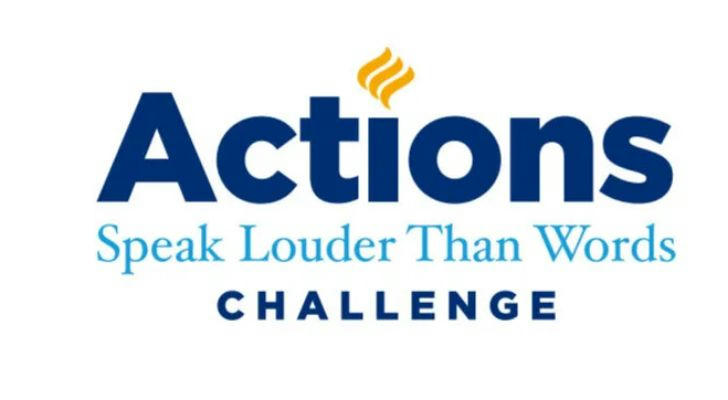No Degree? No Problem Anymore
For decades, a college degree was the golden ticket to a good job in America. It meant credibility, opportunity, and upward mobility. But in today’s fast-changing economy, that diploma isn’t what it used to be.
More and more employers are asking a different question: What can you do? Not where did you go to school? Welcome to the Skill-Based Economy—where talent beats titles, and skills are the new currency of success.
Chapter 1: The Rise of the Skills-First Movement
Big-name companies like Google, Apple, IBM, and Tesla have already dropped degree requirements for many roles. Instead, they focus on what applicants can actually do. Can you write code? Design user interfaces? Manage digital ads? Analyze data?
That’s what matters now.
In fact, a 2023 report from LinkedIn found that over 70% of U.S. job postings now prioritize skills over education. Even more shocking: millions of jobs that once required a bachelor’s degree no longer do.
The job market is shifting fast—and it's a game-changer for people without college credentials.
Chapter 2: High-Paying Jobs That Don’t Need a Degree
Think “no degree” means low pay? Think again. Here are just a few examples of jobs in high demand that don’t require a college diploma:
- Web Developers ($60,000–$110,000/year)
- Digital Marketers ($50,000–$100,000/year)
- UX/UI Designers ($70,000–$120,000/year)
- IT Support Specialists ($55,000–$90,000/year)
- Project Managers ($65,000–$110,000/year)
- HVAC Technicians & Electricians ($50,000–$90,000/year)
- Commercial Drivers ($50,000–$100,000/year, with bonuses)
The truth is: skills that solve real problems—especially in tech, trade, and digital services—pay well, with or without a diploma.
Chapter 3: Why College Isn’t Always the Answer
Let’s be honest—college isn’t for everyone. And it’s getting outrageously expensive. The average student loan debt in America is over $37,000. Many graduates still struggle to find jobs in their field.
Meanwhile, bootcamps, online certificates, and short-term training programs are helping people land solid jobs in months, not years. Platforms like:
- Coursera
- Google Career Certificates
- Udemy
- LinkedIn Learning
- Community college vocational programs
These affordable and accessible paths are giving people the chance to build careers—without the debt.

Chapter 4: The New "Credential" is Proof of Skill
In the skill economy, your portfolio is your diploma.
Employers want to see what you’ve done: websites built, social campaigns managed, systems repaired, products sold. That means things like:
- GitHub profiles
- Digital portfolios
- Certifications (e.g., CompTIA, Google Ads, AWS)
- Hands-on experience through internships or freelancing
- Even TikTok or YouTube content can count—if it shows skill
In this world, action speaks louder than academics.

Chapter 5: The Platforms Fueling the Skill Economy
We’re witnessing the explosion of “alternative career platforms” that connect skilled workers with real jobs:
- Fiverr / Upwork – Freelancers of all kinds are making six figures with no resume required.
- Handshake – Connecting young professionals to employers who care more about skills than degrees.
- Jobber, TaskRabbit, Thumbtack – Let skilled laborers and service providers showcase their talent.
- LinkedIn Skill Assessments – Mini-quizzes that prove your real-world abilities to recruiters.
These platforms are democratizing employment—giving people a path forward without traditional credentials.
Chapter 6: Who Benefits Most from This Shift?
This skill-first job market is great news for:
- Young people who don’t want to go into debt for a degree
- Adults changing careers or re-entering the workforce
- Parents looking for flexible, remote-friendly careers
- People from underserved communities with less access to higher education
- Freelancers and gig workers looking to grow long-term income
It’s no longer about where you come from—it’s about what you can do today.
Chapter 7: Warning: You Still Need to Learn—A Lot
Let’s be clear: skipping college doesn’t mean skipping education.
If anything, continuous learning is more important than ever. You have to be hungry, adaptable, and self-driven. The world changes fast, and new tools, technologies, and platforms emerge every year.
The skill economy rewards people who are always upgrading themselves. If you stay stuck, you’ll be left behind—degree or not.
Conclusion: Skills Are the Future of Work
America is entering a new employment era.
A degree might still open doors—but it’s no longer the master key.
Skills. Passion. Proof. That’s what really gets you in now.
In the skill-first economy, your value is measured by what you can do, not by a piece of paper on your wall. Whether you're launching a new career, switching paths, or starting from scratch—the opportunity is real, and it’s growing.
The question is no longer “Where did you go to school?”
It’s “What can you bring to the table—today?”
So learn. Build. Show your work.
Because in this new world, the future belongs to the skilled.
